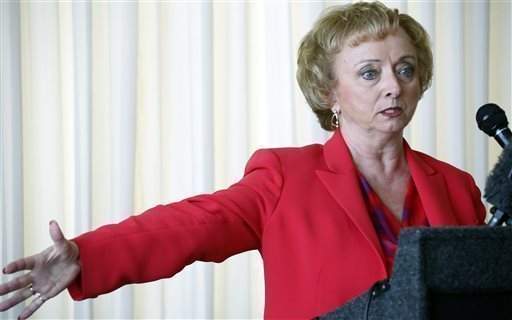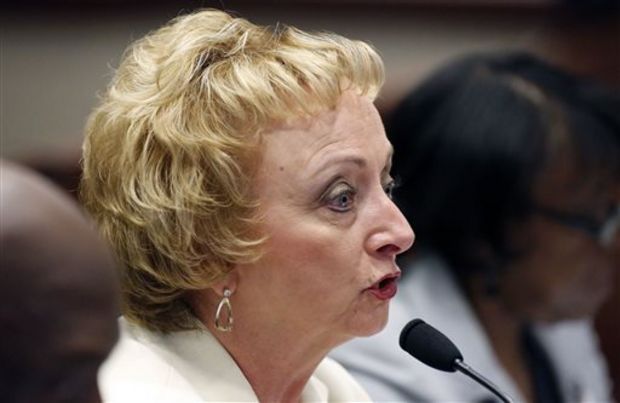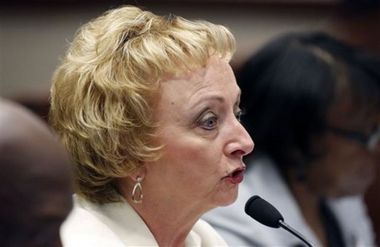

AP file photo
CLINTON, Mississippi (AP) — The Mississippi Board of Education released a revised policy Thursday that for the first time regulates when public school students statewide can be physically restrained or placed in private spaces because of behavior problems.
The board approved the policy Thursday, and the public can comment for the next 30 days. The board could vote as early as April to enact the policy. Mississippi is one of five states without a policy or law to govern the practices.
The restraint and seclusion rule has been a focus of a major lobbying effort since the state unveiled its first draft last April. People who wanted more safeguards warned that the original rule didn’t do enough to curb abuses against children. Several praised the changes, saying state Superintendent Carey Wright had heard their concerns.
“They took a lot of our input, so we’re pleased,” said Mandy Rogers of Parents United Together, which advocates for students receiving special education services.
The new rule calls for schools to use a discipline system that focuses on reinforcing positive behavior, instead of relying on punitive measures.
“You begin with establishing a positive behavioral approach,” Wright told the Board of Education Thursday. “It’s not a restraint and seclusion policy to teach adults how to restrain and seclude children. Restraint and seclusion is to be used as a last resort.”
Wright said it was important that teachers and school employees be properly trained. She said such training should focus on uprooting causes of bad behavior, not just reacting to problems.
“Children behave in a certain way for a certain reason,” she said.
Previous problems included a 2011 lawsuit that said Jackson’s alternative school was using “unreasonable, abusive and excessive physical restraints,” including handcuffing some students to a pole. In May 2012, Jackson settled the lawsuit and agreed to handcuff only older students for crimes. The settlement said employees couldn’t shackle any student to a fixed object.
Handcuffs are already banned in schools under state law, except for certified school resource and police officers. The new policy goes further, saying teachers and other school personnel should be trained in how to touch a student when physical restraint is required. It also says school employees can’t put students on the floor facedown and hold them there.
Rogers and others wanted schools banned from using seclusion, citing instances where children were locked in rooms unsupervised. The rule says that when students are separated, they must be in sight of an adult at all times and can’t be in a locked room. But Wright said giving students time to cool off outside a classroom setting is sometimes key to resolving problems, citing her own experience as a principal in Maryland.
“I think it’s unrealistic that you’re not going to have times when you have to seclude kids,” she said.
L. Rene’ Hardwick, who works on the issue for the Mississippi chapter of the American Civil Liberties Union, said she was pleased that the state would begin collecting data on when schools restrain or seclude students, and called on the state to publish it. She said hoped that the rule would be implemented in such a way that school districts regarded it as a minimum standard which could be refined.
“We can have policies all we want, but if the administrators aren’t really clear about the purpose, it won’t do any good,” Hardwick said.




Be the first to comment